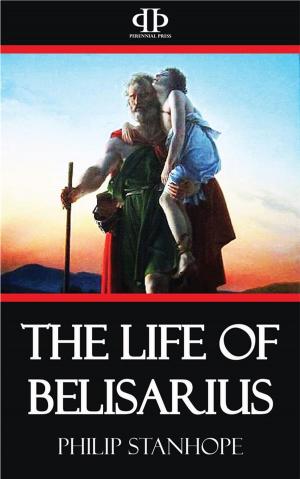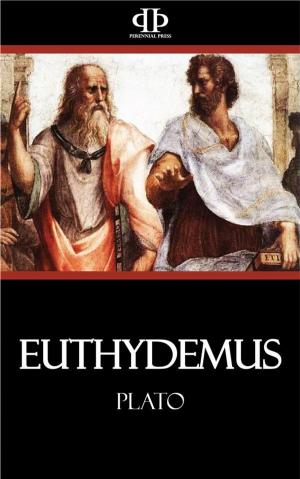The Cambridge Medieval History - Book V
Justinian and the Imperial Restoration in the West
Nonfiction, History, Medieval, Ancient History| Author: | Charles Diehl, H.J. Roby, J.B. Bury-020edt | ISBN: | 9781531230470 |
| Publisher: | Perennial Press | Publication: | February 24, 2016 |
| Imprint: | Language: | English |
| Author: | Charles Diehl, H.J. Roby, J.B. Bury-020edt |
| ISBN: | 9781531230470 |
| Publisher: | Perennial Press |
| Publication: | February 24, 2016 |
| Imprint: | |
| Language: | English |
ON 9 July 518 the Emperor Anastasius died, leaving nephews only as his heirs. The succession was therefore quite undecided. An obscure intrigue brought the Commander-in-Chief of the Guard, the comes excubitorum Justin, to the throne. This adventurer had found his way to Constantinople from the mountains of his native Illyricum in search of fortune, and now became, at the age of almost seventy years, the founder of a dynasty.
The position of the new prince did not lack difficulties. Ever since 484, when the schism of Acacius embroiled the Eastern Empire with the Papacy, incessant religious and political agitations had shaken the monarchy. Under pretence of defending the orthodox faith, the ambitious Vitalianus had risen against Anastasius several times, and proved a constant menace to the new sovereign, since he had made himself almost independent in his province of Thrace. The Monophysite party, on the other hand, which had been warmly supported by Anastasius, suspected the intentions of Justin, and upheld the family of its former protector against him. Placed between two difficulties, the Emperor found that he could rely neither on the army, whose allegiance was uncertain, nor on the disturbed capital, torn by the struggles of the Greens and. Blues, nor yet on the discontented provinces, ruined as they were by war, and crushed under the weight of the taxes. He saw that nothing short of a new political direction could keep his government from foundering.
The part played by Justin himself in the new order of things was a subordinate one. He was a brave soldier, but almost completely lacking in comprehension of things beyond the battlefield. Quite uncultured, he could hardly read, still less write. Historians tell us that when he became Emperor, and was obliged to sign official documents, a plaque of wood was made for him, with holes cut in it corresponding to the letters of the imperial title. By means of these cracks the sovereign guided his halting hand. Having little acquaintance with the civil administration, ignorant of the intricacies of politics, diplomacy and theology, he would have been quite overwhelmed by his position, had he not had someone behind him, to help and guide him. This was his sister's son, Flavius Petrus Sabbatius Justinianus, known to us as Justinian...
ON 9 July 518 the Emperor Anastasius died, leaving nephews only as his heirs. The succession was therefore quite undecided. An obscure intrigue brought the Commander-in-Chief of the Guard, the comes excubitorum Justin, to the throne. This adventurer had found his way to Constantinople from the mountains of his native Illyricum in search of fortune, and now became, at the age of almost seventy years, the founder of a dynasty.
The position of the new prince did not lack difficulties. Ever since 484, when the schism of Acacius embroiled the Eastern Empire with the Papacy, incessant religious and political agitations had shaken the monarchy. Under pretence of defending the orthodox faith, the ambitious Vitalianus had risen against Anastasius several times, and proved a constant menace to the new sovereign, since he had made himself almost independent in his province of Thrace. The Monophysite party, on the other hand, which had been warmly supported by Anastasius, suspected the intentions of Justin, and upheld the family of its former protector against him. Placed between two difficulties, the Emperor found that he could rely neither on the army, whose allegiance was uncertain, nor on the disturbed capital, torn by the struggles of the Greens and. Blues, nor yet on the discontented provinces, ruined as they were by war, and crushed under the weight of the taxes. He saw that nothing short of a new political direction could keep his government from foundering.
The part played by Justin himself in the new order of things was a subordinate one. He was a brave soldier, but almost completely lacking in comprehension of things beyond the battlefield. Quite uncultured, he could hardly read, still less write. Historians tell us that when he became Emperor, and was obliged to sign official documents, a plaque of wood was made for him, with holes cut in it corresponding to the letters of the imperial title. By means of these cracks the sovereign guided his halting hand. Having little acquaintance with the civil administration, ignorant of the intricacies of politics, diplomacy and theology, he would have been quite overwhelmed by his position, had he not had someone behind him, to help and guide him. This was his sister's son, Flavius Petrus Sabbatius Justinianus, known to us as Justinian...















